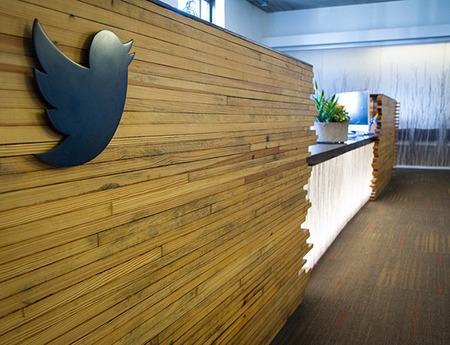Big Tech Defends Twitter's Trump Ban
Groups say appeals court panel should not have rejected Twitter challenge to Texas investigation

The smarter way to stay on top of the streaming and OTT industry. Sign up below.
You are now subscribed
Your newsletter sign-up was successful
Computer companies are standing up for Twitter in federal court, telling the federal appeals court for the 9th U.S. Circuit Court of Appeals that it should reject and rethink a panel decision ruling against the social media company‘s challenge to an investigation by Texas Attorney General Ken Paxton.
Paxton, a Republican, launched an investigation of Twitter’s moderation practices after the social media platform banned former President Donald Trump for life following the Jan. 6 insurrection at the Capitol. Republicans have argued that social media has it in for conservative speech, while social media platforms counter that they have it in for harmful speech, including disinformation and incitement of violence.
Texas currently has four ongoing lawsuits against Big Tech and makes clear on Attorney General Paxton's website why, saying: “Big Tech has controlled the online sphere for long enough. They take advantage of their platforms and block competitors from reaching consumers and suppress the voice of rival products. They have your information, and many times, they are not clear with how they use it.”
Paxton has said one of his priorities is “returning the web to a fair playing field where everyone has a chance to succeed.”
Paxton has said that rather than investigating those moderation practices, he is instead investigating “whether Twitter misrepresents those policies to Texans," something he says he can do under the state's deceptive trade practices law.
Twitter had alleged Paxton's investigation was retaliation for Twitter's protected First Amendment right to moderate its platform, in this case by banning Trump for life. But a panel of the Ninth Circuit said the issue was not ripe for appeal because the attorney general had not yet made any allegations against Twitter.
But in an amicus brief to the court filed Monday (April 11), the Computer & Communications Industry Association, whose members include Twitter as well as Google, Facebook, Amazon and Apple, joined by NetChoice and Technet, said the 9th Circuit panel got it wrong and the full court needed to vacate that decision and hear the case en banc (meaning all the judges participating, not just a three-judge panel).
The smarter way to stay on top of the streaming and OTT industry. Sign up below.
The brief laid out the case for why content moderation is a vital and constitutionally protected exercise of the First Amendment right to editorial discretion that courts have recognized and that the panel’s decision not to take up Twitter‘s challenge undermines the First Amendment because the investigation itself combined with the panel decisions chills speech and thus harms internet users.
And while appeals court decisions are binding only in the circuit in which they are handed down, CCIA and company point out that many of its members are based in the 9th Circuit and thus the panel opinion effectively creates a rule with national, and even international, implications. They said that given those high stakes, en banc review is required.
“We are alerting the court to the dangers of letting the panel’s incorrect interpretation stand,“ CCIA president Matt Schruers said. “This ruling undermines the constitutional protections that digital services need to protect their communities. The panel misunderstood Twitter’s challenge to Paxton’s overbroad, retaliatory investigation and mischaracterized the First Amendment concerns when it dismissed this case.
“Companies like Twitter have the First Amendment right to engage in content moderation or decide what content to host online. Now more than ever, we should want digital services taking actions to protect users from dangerous content and foreign propaganda.” ▪️
Contributing editor John Eggerton has been an editor and/or writer on media regulation, legislation and policy for over four decades, including covering the FCC, FTC, Congress, the major media trade associations, and the federal courts. In addition to Multichannel News and Broadcasting + Cable, his work has appeared in Radio World, TV Technology, TV Fax, This Week in Consumer Electronics, Variety and the Encyclopedia Britannica.

